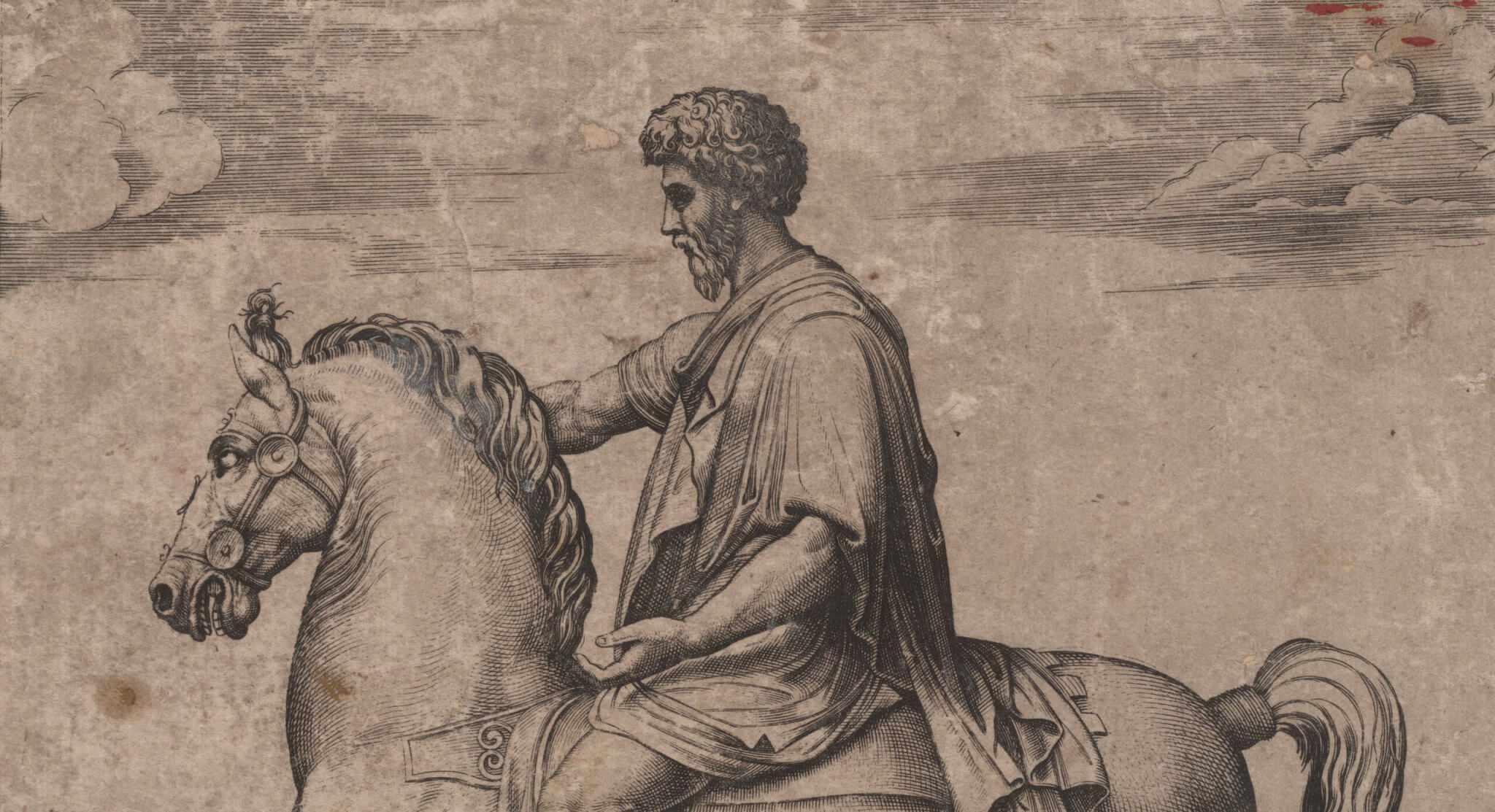The Wisdom of Marcus Aurelius

The “must-read” list, like the making of books, never ends. The Meditations of Marcus Aurelius hardly stands as a newcomer to that list, yet its place has been often overlooked. The Meditations is a classic work of wisdom literature, providing inspiration and endless fodder for reflection and conversation.
Marcus offered more than his own wisdom, speaking of the valuable lessons and benefits gained from others: “Thanks to my great-grandfather, I didn’t have to waste my time in the public schools but had good tutors at home instead and learned that one cannot spend too much money on such things.” From Rusticus, Marcus was taught “to read books for detailed understanding and not to settle for general summaries or accept uncritically the opinions of reviewers.”
Though the Meditations were originally written for his own self-study and contemplation, the words of Marcus prove enduringly valuable for headmasters, parents, teachers, and other leaders, providing rich guidance for those who shepherd others, yet doing so in a way that addresses everyone.
- “First thing every morning tell yourself: today I am going to meet a busybody, an ingrate, a bully, a liar, a schemer, and a boor. Ignorance of good and evil has made them what they are. But I know that the good is by nature beautiful and the bad ugly, and I know that these wrong-doers are by nature my brothers, not by blood or breeding, but by being similarly endowed with reason and sharing in the divine.”
- “Your days are numbered. Use them to throw open the windows of your soul to the sun. If you do not, the sun will soon set, and you with it.”
- “Because you have chosen not to respect yourself, you have made your happiness subject to the opinions others have of you.”
- “Not knowing what other people are thinking is not the cause of much human misery, but failing to understand the workings of one’s own mind is bound to lead to unhappiness.”
- “Nothing will sooner prevent your true spirit from flourishing or be more difficult to root out than the distraction of a divided loyalty. Nothing whatsoever – neither popularity, nor wealth, nor power, nor the pleasures of the flesh, nor anything of the sort – should compete in your affection for the good that flows from reason and neighborliness.”
- “There is no present advantage in anything that may someday force you to break your word, or to lose respect for yourself, or to hate, suspect, or curse another, or to pretend to be other than you are, or to lust after what you’d be ashamed to seek openly.”
And, while Marcus’s seemingly contradictory advice is true – “You don’t have time to reread your diaries, or the lives of the ancient Greeks and Romans” – you ought to make time to read this one. The Meditations is a short book, but not a quick read, a work that rewards you with each return.
If you are interested in learning more about Marcus Aurelius and his Meditations, checkout Dr. Brian Phillips for “90 Minutes with the Classics: The Meditations of Marcus Aurelius” webinar recording.

Brian Phillips
Dr. Brian Phillips serves as a pastor in Concord, NC, where he lives with his wife and their four children.










